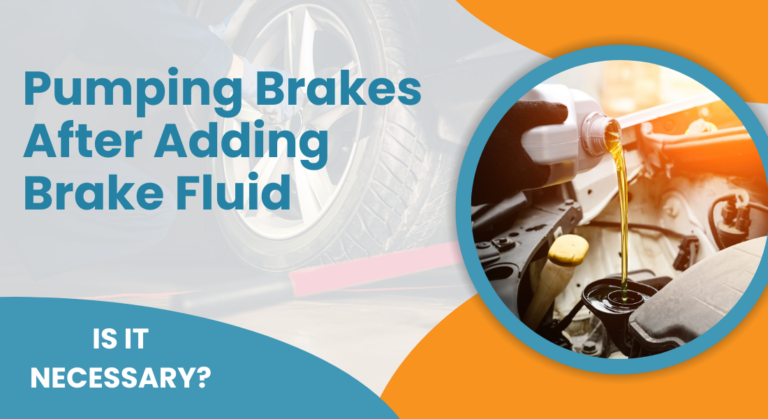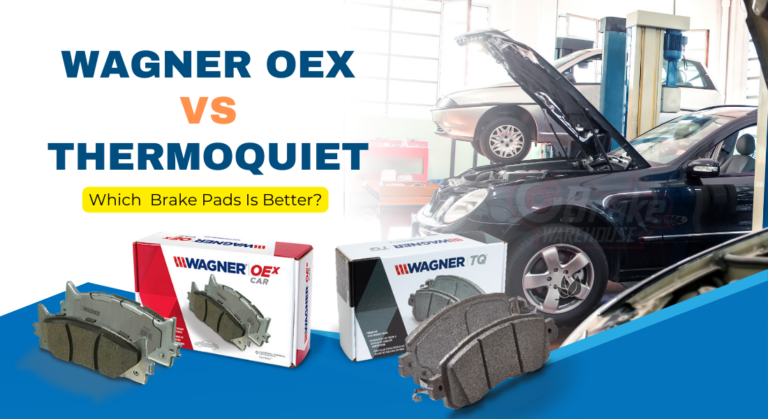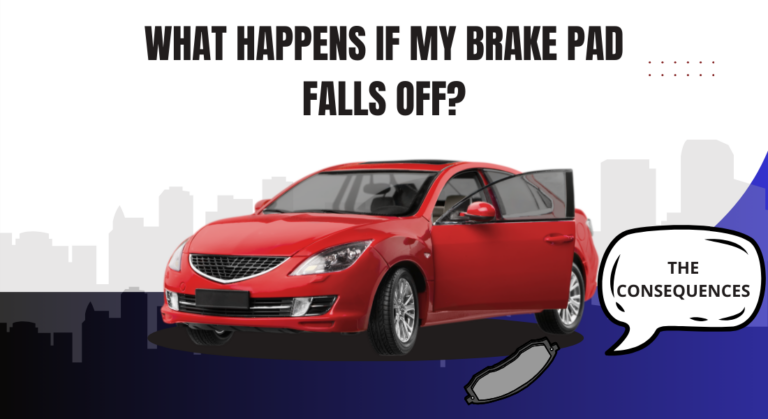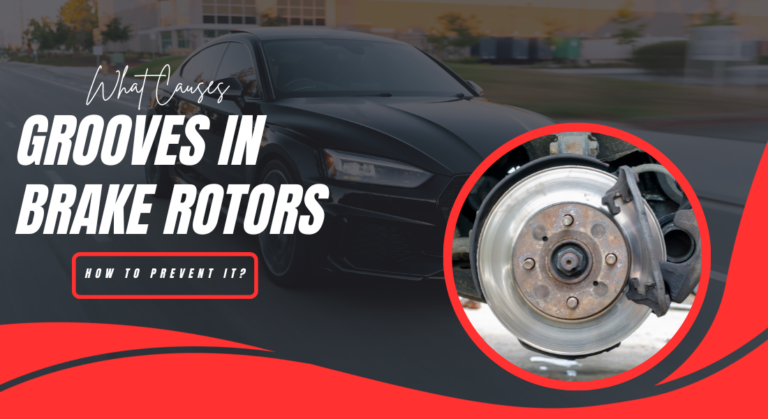Brake Caliper Leaking Fluid When Compressed – How To Fix?
Brake fluid plays a crucial role in your vehicle’s braking system. The fluid transmits the driver’s input to the brake pads and slows or stops the car. Unfortunately, brake calipers may leak fluid over time, causing severe problems if unaddressed.
A brake caliper can leak fluid due to worn or damaged calipers or piston seals, allowing fluid to escape under pressure. Moreover, improper installation and maintenance can cause leaks. Furthermore, overheating during prolonged or aggressive braking can damage the seal and cause subsequent fluid leakage.
This comprehensive article looked into an extensive discussion about why is brake caliper leaking fluid when compressed and effective solutions.
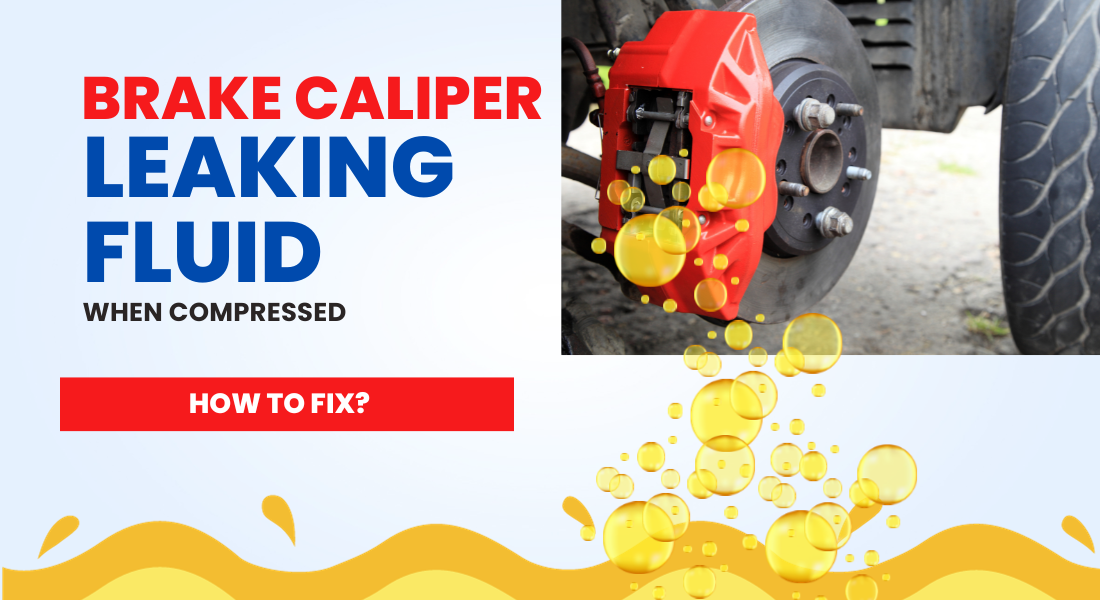
Why is Brake Caliper Leaking Fluid When Compressed? 15 Reasons To Check
Brake fluid leaks from calipers can be problematic for drivers and mechanics alike. These leaks can compromise the safety and effectiveness of a vehicle’s braking system.
Let’s look at the causes of brake caliper leaking fluid when compressed.
Worn or Damaged Caliper Seals

One of the most common reasons for brake fluid leaks from calipers is the deterioration or damage of the caliper seals.
These seals are vital in containing the caliper’s brake fluid. When they wear out or become damaged, they lose their ability to maintain a proper seal. As a result, brake fluid escapes when compressed.
Corrosion
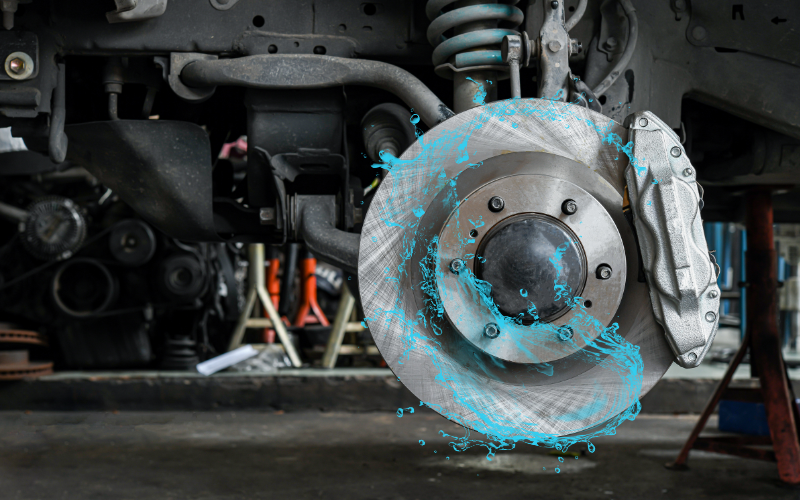
In regions with harsh weather conditions or exposure to road salt, corrosion can accumulate on the caliper and its components.
This corrosion weakens the caliper’s structure, making it susceptible to leaks. Regular inspection and maintenance are crucial in such environments to prevent this issue.
Read Also: How To Free a Stuck Brake Caliper Piston?(11 Steps Guide)
Improper Installation
Improper installation of the braking system components can compromise the integrity of the seals. It leads to potential brake fluid leakage. Proper installation by trained professionals is essential to avoid this problem.
Overheating
Aggressive driving or prolonged braking can generate excessive heat, causing the internal components of the caliper to expand. If the seals cannot accommodate this expansion, it may leak brake fluid. Adequate cooling and brake maintenance can mitigate this risk.
Contamination
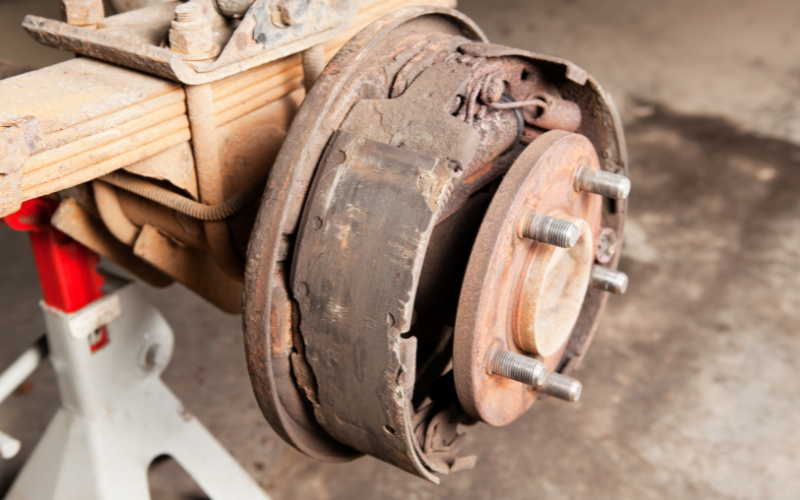
Foreign particles like dirt and debris can infiltrate the braking system and damage the seals, diminishing their effectiveness. Regular cleaning and maintenance are essential to prevent such contaminants from causing leaks.
Improper Maintenance
Neglecting routine maintenance tasks, such as cleaning and lubricating of caliper components, can lead to worn or damaged calipers more prone to leaks. Following recommended maintenance schedules is crucial.
Incorrect Brake Fluid

Using the wrong brake fluid for your vehicle can damage the caliper seals, resulting in leaks. Always use the recommended brake fluid specified in your vehicle’s manual to prevent this issue.
Brake Hose Damage

Damage or wear in the brake hoses that connect the caliper to the rest of the braking system can also lead to leaks. Regular inspection and replacement of damaged hoses are essential for preventing this problem.
Improper Bleeding

During the brake bleeding process, if air is not adequately removed from the brake lines, it may result in brake fluid leaks. Proper bleeding procedures are essential to maintain the integrity of the braking system.
Manufacturer Defect
While rare, manufacturing defects in the caliper or its components can cause brake fluid leakage. In such cases, seeking warranty coverage or replacement may be necessary.
Damaged Brake Hose or Brake Lines
The brake hose and lines, designed for resilience in rugged conditions. It can develop issues over time, such as pitting, rust, or tears. Defective brake line fittings, fractured brake lines, and torn brake hoses may lead to fluid leaks.
Read Also: Both Front Brake Calipers Not Releasing – Why & How To Fix?
Loose or Damaged Bleeder Valve

Each wheel on a vehicle features a bleeder valve (or bleeder screw) for air removal during brake system bleeding. If this valve becomes dislodged or corroded due to rust, it can result in fluid leaks.
Worn Brake Components (Shoes, Pads, Drums, and Rotors)
Brake shoes, pads, drums, and rotors inevitably wear out. This wear can cause the pistons to extend beyond their limits, damaging seals and causing fluid leaks.
Defective Brake Master Cylinder Reservoir
Many newer cars utilize plastic brake fluid reservoirs that can become brittle due to excessive engine bay heat.
This can lead to reservoir cracking and brake fluid seepage, often seen around the middle of the vehicle. Brake lines can also be implicated in such cases.
Faulty ABS Module
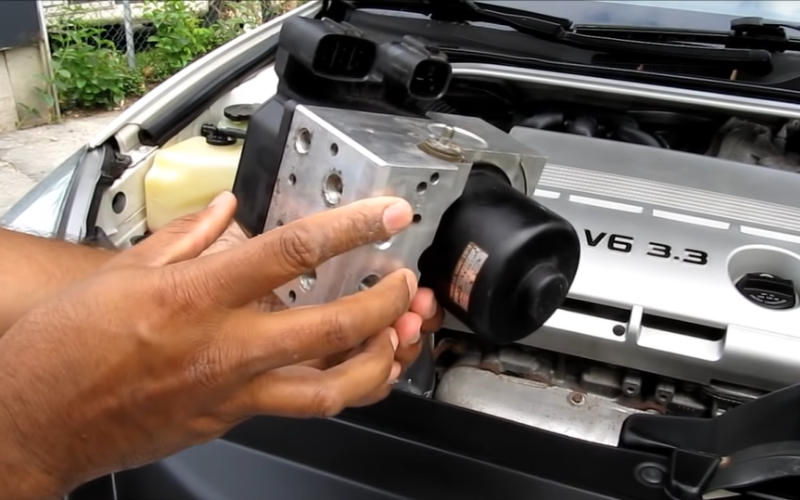
The ABS module includes high-pressure brake fluid lines. Unfortunately, this component can succumb to rust or wear due to mechanical forces, potentially causing fluid leaks.
Read Also: No Brake Pressure After Changing Calipers – Why & How To Fix It?
What to Do If You Suspect a Brake Fluid Leak?
If you suspect your vehicle has a brake fluid leak originating from the caliper, it’s vital to act swiftly to ensure safety. Here are steps to follow if you suspect a brake fluid leak:
Monitor Brake Fluid Level
Regularly check the brake fluid level in the reservoir to ensure it stays within the recommended range.
A sudden decrease in fluid level or the need for frequent top-ups may signal a brake system leak.
Inspect for Visible Indicators

Examine your vehicle for visible signs of brake fluid leakage, such as wet spots beneath the car or on the wheel rims.
Additionally, pay attention to the brake pedal’s feel – a spongy or soft pedal can be a leak symptom.
Consult a Professional Mechanic Immediately
If any signs of a brake fluid leak are detected, it’s crucial to take your vehicle to a certified mechanic promptly.
Driving with a leaking caliper carries significant risks, as discussed earlier, and should be avoided to ensure safety on the road.
How to Prevent Brake Fluid Leaks?
Preventing brake fluid leaks from the caliper ensures your vehicle’s safety and reliability. By ensuring these practices, you can reduce leaks and maintain peak performance in your braking system:
Regular Brake System Maintenance
Establish a schedule for routine brake system check-ups and maintenance, like examinations of the brake fluid level, calipers, brake pads, and rotors.
A professional mechanic can detect potential issues early, preventing more severe problems.
Timely Replacement of Worn Brake Components
Brake components, including pads and calipers, naturally wear out over time and require replacement. Check their condition periodically. Also, promptly replace them to prevent leaks and other braking system complications.
Proper Installation of Brake Components
Ensure all brake components, including calipers, are installed correctly and securely. Incorrect installation can compromise seals and invite the risk of leaks.
If you need more clarification about proper installation procedures, seek guidance from a professional mechanic.
Prevent Brake System Overheating
Overheating can trigger the expansion of brake components, potentially leading to leaks in caliper seals.
Avoid aggressive driving maneuvers and prolonged braking to prevent overheating. Allow your brakes ample time to cool down during extended journeys to maintain their integrity.
FAQs
Is it safe to drive with brake caliper leaking fluid?
No, driving with a brake caliper leaking fluid is unsafe. A leaking caliper minimizes the braking system’s effectiveness, reducing braking power, potential loss of control, and increased stopping distance. It poses a significant safety risk and requires immediate attention and repair.
How severe is a brake caliper leaking fluid?
A brake caliper leaking fluid is a severe issue. Your care brake performance will significantly reduce. Also, you will experience longer stopping distances, increasing risk of accidents. Driving with a leaking caliper is highly dangerous and should be addressed immediately to ensure safety on the road.
Last Notes
A brake fluid leak from a caliper is a critical concern that can affect your vehicle’s braking system’s safety and efficiency. Recognizing visible indicators like wet patches on the ground or wheel rim, a drop in brake fluid level, and a spongy brake pedal is essential.
Understanding why is brake caliper leaking fluid when compressed aids in prompt identification and resolution.
In the case of a suspected brake fluid leak, immediate action is imperative. Remember, driving with a leaking caliper is unsafe. You may experience diminished braking power, longer stopping distances, and potential brake system failure.

Meet Zayan, the mechanical genius behind the highly acclaimed brakes problems and solutions website. With over a decade of hands-on experience in the automotive industry, Zayan has become a trusted authority in the realm of brake systems.
His passion for cars, coupled with his expertise in solving complex brake-related issues, has earned him a devoted following of car enthusiasts, mechanics, and everyday drivers seeking reliable guidance.

